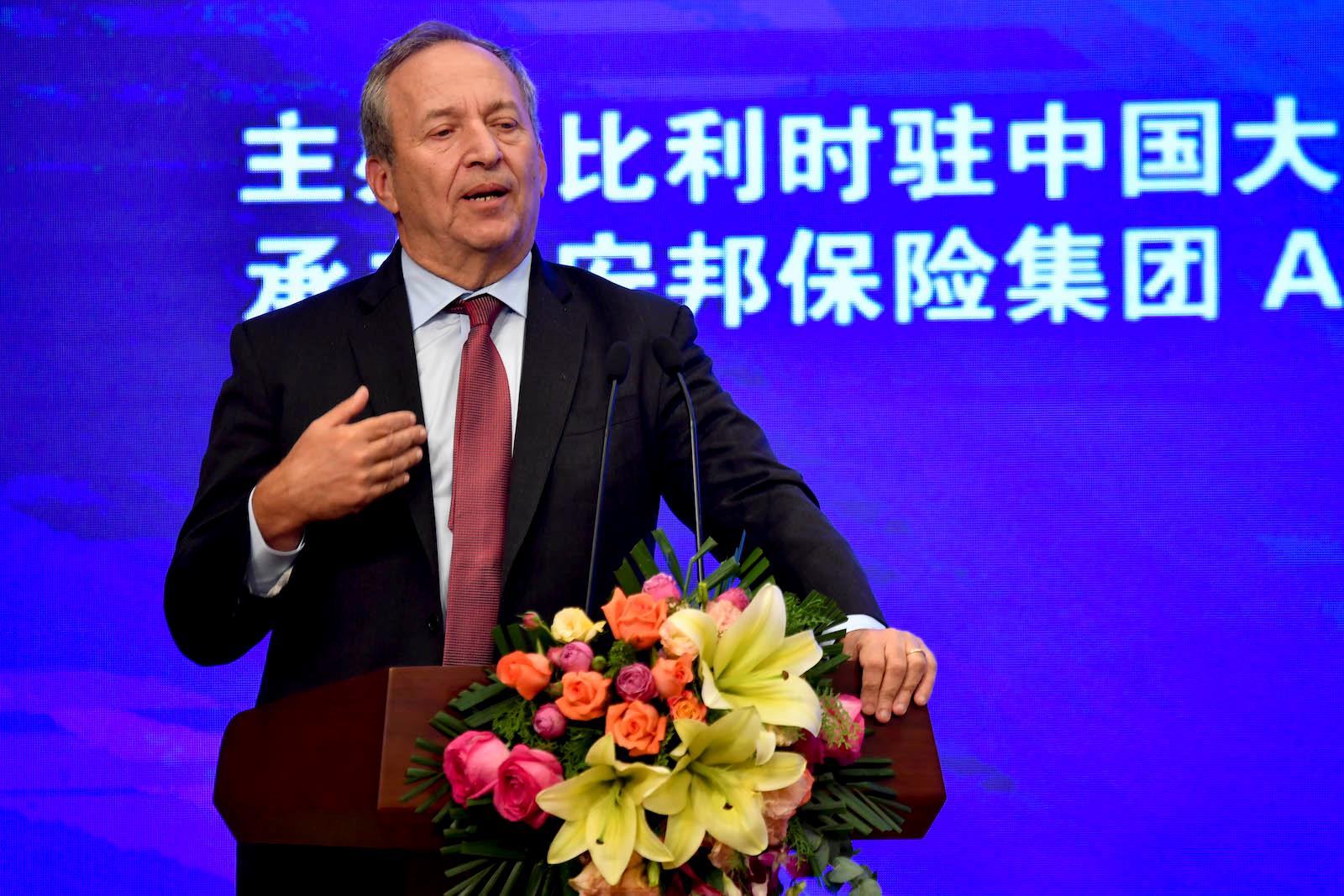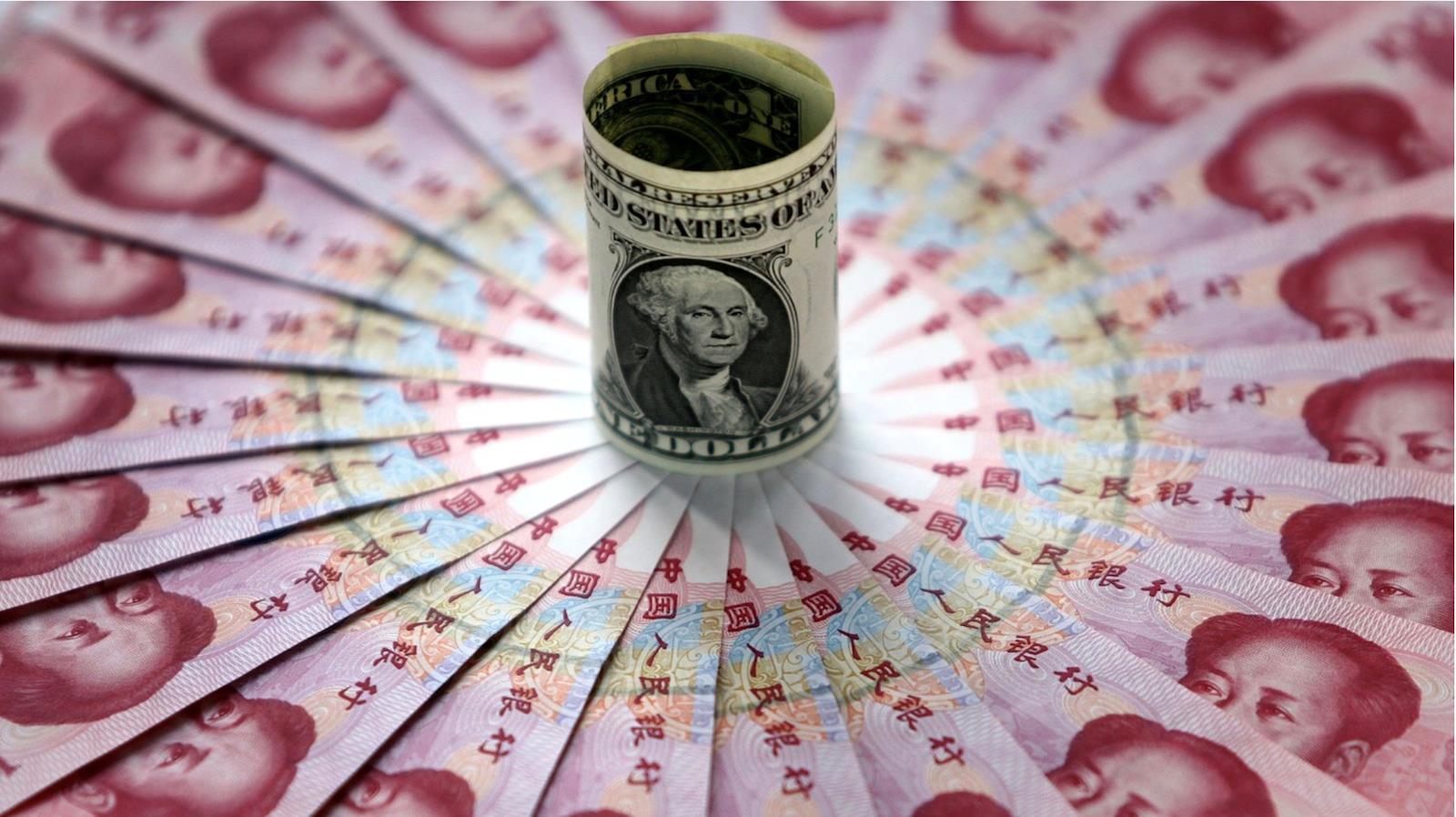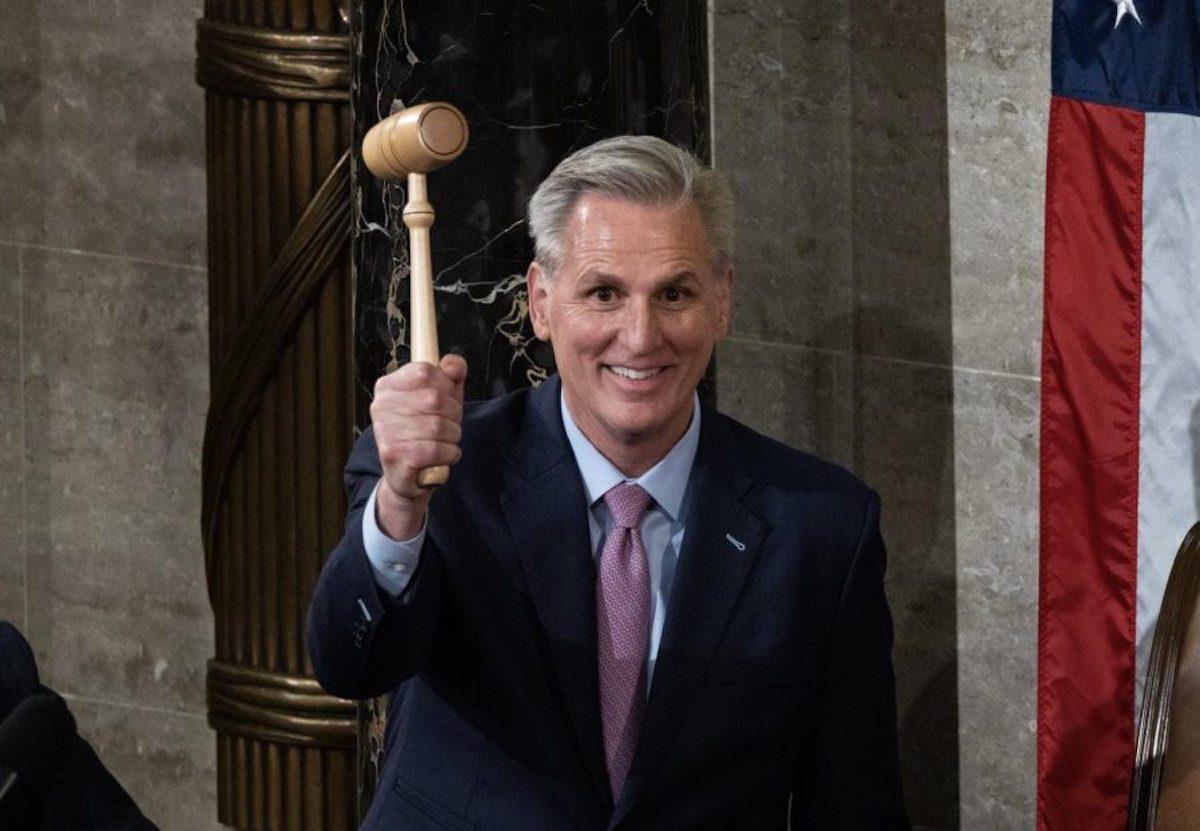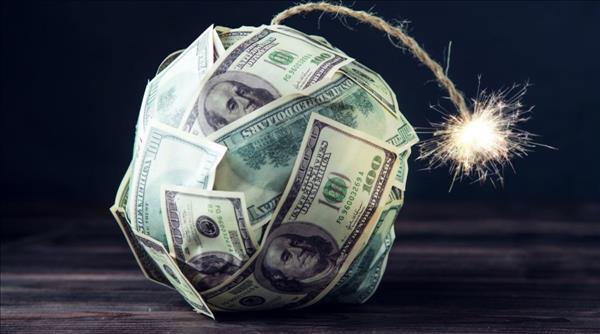(MENAFN- Asia Times) TOKYO – Few professions are better at making straw-horse arguments than the economics trade. The reason: it's always easier to refute an unserious argument than tackle the biggest questions of the day.
The arguments US leading economists Lawrence Summers and Paul Krugman are making these days about the
rivalry
between the Chinese yuan and US dollar are Exhibit A.
Take Summers, the former US Treasury secretary, who made headlines this week detailing why the yuan isn't a threat to the dollar's dominance as reserve currency anytime soon. Trouble is, virtually everyone already knows a currency that isn't fully convertible or backed by deep capital markets can't acquire significant reserve status.
The reason top economic minds do this, of course, is to avoid the proverbial elephant in the room. In this case, that's the US national debt racing toward US$32 trillion.
Dysfunctional politics putting Washington on a path to possible
default
doesn't help. Nor does a US Federal Reserve team losing global confidence with distressing speed.
The yuan isn't the issue. It's a fragile dollar problem that isn't being treated, nurtured or reenergized at an epochal moment.
That hasn't stopped the financial world from obsessing over questions with little relevance in 2023. Here, Summers is a case in point as he explains what everyone already knows about the challenges facing China's currency.
“Is [China] really going to be a place where people are going to decide they want to hold reserves on a massive scale?” he rhetorically asked Bloomberg.
Summers adds that“there has never been a country where there was a strong desire to move as much capital out of the country as we're seeing in china right now, albeit blocked by controls.”

Lawrence Summers in Beijing, China, October 31, 2016. Photo: Twitter
Nobel laureate Krugman, meanwhile, makes a force-of-habit argument. The dollar's dominance - and the power of incumbency - makes it somewhat untouchable as a linchpin of global finance and trade. To him, it would require“exceptional circumstances” for the
dollar
to be eclipsed in global circles.
Yet isn't what's afoot in Washington exactly that, as Congress threatens to renege on US government debt?
The last time Republicans in the House of Representatives played chicken with the debt ceiling didn't end well. That was back in 2011, when Congress members hinted at letting the US default to buttress their fiscal hawk bona fides. Standard & Poor's abruptly yanked away Washington's AAA credit rating.
A dozen years on, this game is a far more precarious one. The trajectory of US debt is one problem. So is how the Fed's campaign to tame the worst inflation in 40 years is causing collateral damage from Latin America to Africa to Asia.
Political chaos in Washington also raises the stakes. In the post-Donald Trump era, legislative polarization has hit a fever pitch - as evidenced by the default debate spooking world markets.
To be fair, Summers and his ilk aren't oblivious to these toxic dynamics. Summers notes that“if the dollar loses its status, it will be because the United States is no longer respected and strong in the world. It will be because we've accumulated a set of untenable debts.”
Yet this seems far less of an“if” than most top US economists let on. Just ask officials here in
japan , which holds the world's largest stockpile of US Treasury securities at about $1.1 trillion. Beijing holds just under $1 trillion of US debt.
Cumulatively, Asia's top central banks are stuck with
nearly
$3.5 trillion of US debt at a moment when the US government isn't operating effectively. From time to time, fears that America's top bankers will start reducing their exposure to the dollar
fuels mini-panics in currency markets.
It's a long-standing source of paranoia, of course. Back in 1997, for example, then-Japanese prime minister Ryutaro Hashimoto dropped a bombshell on an audience in New York.“Several times in the past, we have been tempted to sell large lots of US Treasuries,” Hashimoto said, a comment that sent bond prices sharply lower.
At the time, the late Japanese leader cited contentious US-Japan auto trade talks as one such moment when Tokyo mulled dumping US Treasuries. Fourteen years later, in
2011, China's state-run People's Daily ran an editorial saying:“Now is the time for
china
to use its 'financial weapon' to teach the US a lesson” regarding its support for Taiwan.
Back in 2011, economists like Brad Setser, a former US Treasury staffer, began stressing that big stockpiles of US debt held by China and other geopolitical rivals represent a growing national security threat.

China holds over US$1 trillion worth of US debt. Image: iStock
But then, officials in China also have raised concerns that Beijing is essentially trapped with its mountains of dollars. In 2009, for example, then-premier Wen Jiabao implored Washington to protect its AAA status.
“We have made a huge amount of loans to the United States,” Wen said.“Of course, we are concerned about the safety of our assets. To be honest, I am a little bit worried.”
Washington, Wen stressed, must“honor its words, stay a credible nation and ensure the safety of
chinese assets .”
Nearly a decade later, in 2018, Cui Tiankai, then China's ambassador to the US, hinted that Beijing might reduce its Treasuries holdings due to concerns about losses.“We are looking at all options,” he said.
Also in 2018, Fan Gang, a top adviser to China's central bank, talked publicly about diversifying away from the dollar.
“We are a low-income country, but we are a high-wealth country,” Fan said.“We should
make better use of capital . Rather than investing in US government debt, it's better to invest in some real assets.”
It's tantalizing to think, too,
of how America's bonds held abroad are often the tail wagging the economic dog. In 2009, for example, then-US Secretary of State Hillary Clinton asked former Australian prime minister Kevin Rudd:“How do you deal toughly with your banker?”
In February of that year, in her first trip to
china
as a top US cabinet official, Clinton downplayed discussions over human rights and played up Washington's hopes of prodding China to buy more government debt.
The Trump era did
serious
damage to global confidence in the dollar. Along with a record $1.8 trillion tax cut, Trump's disastrous handling of Covid-19 necessitated $7.4 trillion of fresh government spending. Equally worrisome were Trump's flirtations with defaulting on US debt to hurt China.
President Joe Biden has since drawn accusations of wielding the dollar as a tool in efforts to sanction Russia over its Ukraine invasion.
As strategist John Mauldin at Millennium Wave Advisors notes,“the Biden administration made an error in weaponizing the US dollar and the global payment system. That
will force non-US investors and nations to diversify their holdings outside of the traditional safe haven of the US.”
But the coming fight over the debt ceiling could trump all.“A reason to think this time may be different,” says economist Will Denyer at Gavekal Research,“is the make-up of the Republican Party in the House of Representatives. The fractious caucus only elected kevin mccarthy as speaker in January with a tiny majority after an epic 15 rounds of voting.”

Speaker Kevin McCarathy is leading House Republicans in yet another messy credit ceiling fight. Photo: Wikimedia Commons
It's possible, Denyer says,“that Tea Party-type Congressional Republicans use their leverage over the party leadership to veto a compromise deal and impose a hostile negotiating stance. Hard-line 'small government' Republicans may argue on principle that destroying the government's bond market credibility will make it harder for it to borrow and so help starve the beast.”
Strategist Brian Gardner at Stifel Nicolaus & Co adds that this“dysfunction is a clear signal.” Markets, he adds,“should be on guard as the summer approaches” because“brinkmanship over the debt ceiling could lead to market volatility.”
Yet this standoff between Republicans and the White House could trigger what
Treasury Secretary Janet Yellen calls an“economic and financial catastrophe”,
whereby US institutions shoot the reserve currency in the foot, irrespective of the status of the Chinese yuan.
Follow William Pesek on Twitter at @williampesek
Like this:Like Loading...























Comments
No comment